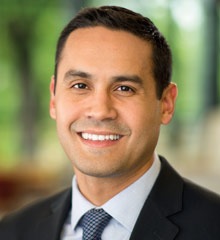
A Teacher in a Strange Land
Alright, not a strange land. It’s just Berkeley.
Let me back up.
I am currently about halfway through a teaching gig at Pacific School of Religion thanks to the intrepid work of the Hispanic Summer Program. For two weeks, I am helping a group of students find their way through the exciting but complex questions that emerge when racial and ethnic identities meet the vibrant stories of Scripture.
It is one of my favorite classes to teach, though it never seems as if I teach the same course twice.
More than any other course I teach, the makeup of the students seems to make all the difference in the tone and pace of the class. When I have taught this class with primarily Caucasian students, the conversation about identity took up a great deal of time early in the semester because students from majority cultures have generally not had to think daily about the performance of their ethnic identities. Their identities simply are, and the surrounding culture supports them. Performing their identities is as effortless as taking a breath, so the discussion about the construction of ethnic identities is eye-opening for many of them. Those first few weeks of class are trying as students stretch their imaginations.
A few summers ago, I taught to a classroom almost entirely made up of Latina/o students for whom the conversation about the basics of identity did not last long. They already understood too well the rigors of performing an ethnic identity in a culture that does not support it at every turn. I didn’t really have to explain identity, its construction, benefits, and many burdens. They got it. Instead, it was the diversity of Latina/o experiences that took them aback, especially the ways in which Latina/o cultures continue to participate and perpetuate in forms of racism and sexism that are no less problematic than those practiced by dominant cultures.
These last two weeks, I have been teaching students on a campus I did not know at all. I didn’t know what to expect about their questions or about ministry. In this particular class, it was the intersection of ethnicity, gender, and sexuality that most drew their attention, concern, and inquiry.
I have been struck by the particularities and similarities among all these students. The classes had distinctive sticking points, different topics or ideas that would grind the class to a halt. But in every case, central questions emerged in common: What will the construction of identity look like in the future? What will ministry among growing diversity require of pastoral leaders?
One of the more important teaching points of the course is that biblical interpreters must be contextualized as much as we contextualize ancient culture. I think there is an analogous lesson for teachers here.
We often think about the contexts of our students: What are their assumptions? How can such assumptions be tested? What will their future vocations demand, and how can teachers prepare them to address the changing contexts in which they will work?
But we teachers ought also test our own assumptions, be prepared to be delighted and surprised by those disorienting moments when our classes go off the rails. Teaching this particular course in three very different contexts has shown this to me in sharp relief. How might we invite that kind of pedagogical disorientation even as we take the same walk from our offices to the same classroom every semester? How can we best notice the changes in our students and thus the needed changes our teaching needs to make?
